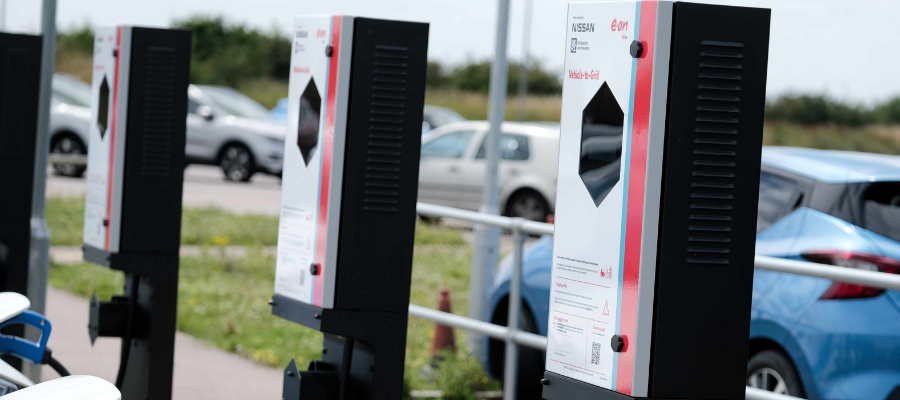🕒 Article read time: 3 minutes
Van operators struggle to electrify fleets

Members at last week’s Van Policy Working Group enjoyed a lively discussion on the government’s target to end the sale of petrol and diesel vans by 2030.
The topic excited animated debate from the 21-strong group, which represent a broad range of sectors within the van industry, including utilities, parcel couriers, supermarkets, local authorities, vehicle rentals and mining and quarrying.
“Bringing forward the date for ending the sale of new petrol and diesel vans to 2030 and for hybrids to 2035 is very much a political decision,” said Denise Beedell, Logistics UK’s Policy Manager for Vans and Urban. “We have been strongly making the case that the deadlines, even when it was originally floated at 2035, were going to be challenging for our industry.”
Beedell also underlined that the proper framework of grant support and adequate infrastructure must be in place by the time the ban takes effect.
“Up until about a year ago, the mood music, if you like, the comments and statements that we were hearing from government departments was that electrification was the main route to transport decarbonisation,” Beedell said, “And for most light goods vehicles we would agree.”
However, for some members electrification is more challenging, particularly for those with fleets that operate 24/7 or in remote locations and use vehicles at the heavier end of the weight range.
“The biggest barrier to depot electrification is the fact that it can cost over £1 million to upgrade your electricity supply if you want to electrify your fleet at scale,” Beedell said. “As your EV fleet increases, there are solutions to limited capacity, such as smart charging and battery storage, and if you have a regular duty cycle where your vans aren’t needed out on the road all the time. But for those operators seeking to electrify their whole fleet, eventually the point is reached where only an upgrade will do.”
Beedell continued: “And for operators with heavier vehicles in constant use, electrification may not be feasible. Which is why Logistics UK is pleased to see £20 million funding for hydrogen and other alternative fuel trials announced in the government’s ’10 Point Plan for a Green Revolution’. It’s important that a wide range of decarbonisation solutions are available for operators, given the diversity of activities undertaken by our industry.”
Logistics UK is currently campaigning to find a fairer and more equitable way for operators to upgrade their electricity supply, so that the cost is not borne disproportionately by those operators that are the first to upgrade in their locality.
Members interested in joining or finding out more about the Van Policy Working Group should email Denise Beedell.
*www.logistics.org.uk/ membership/fta-councils/van-policy-working-group
Published On: 11/02/2021 17:00:55

Comments Section
If you are a Logistics UK member login to add comments.